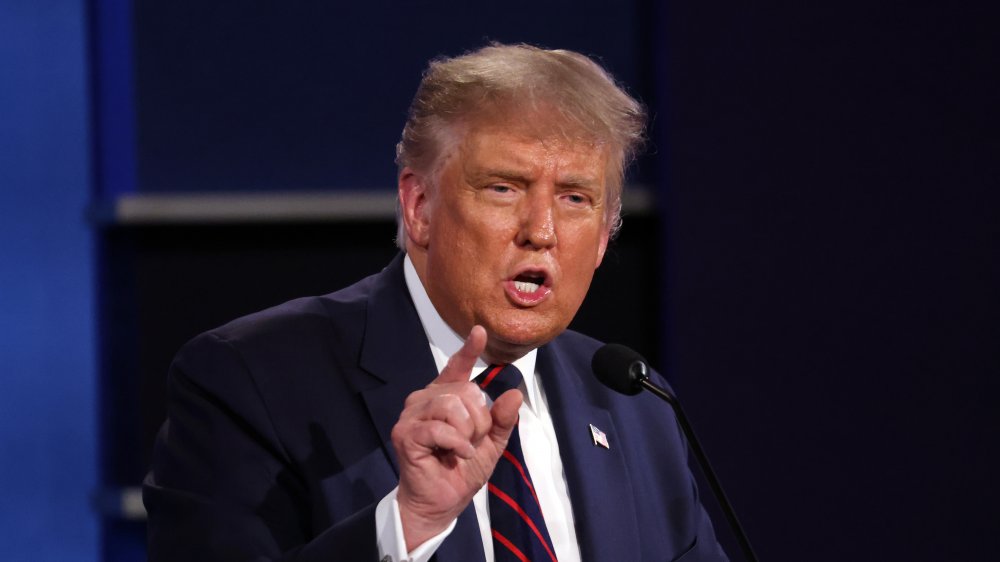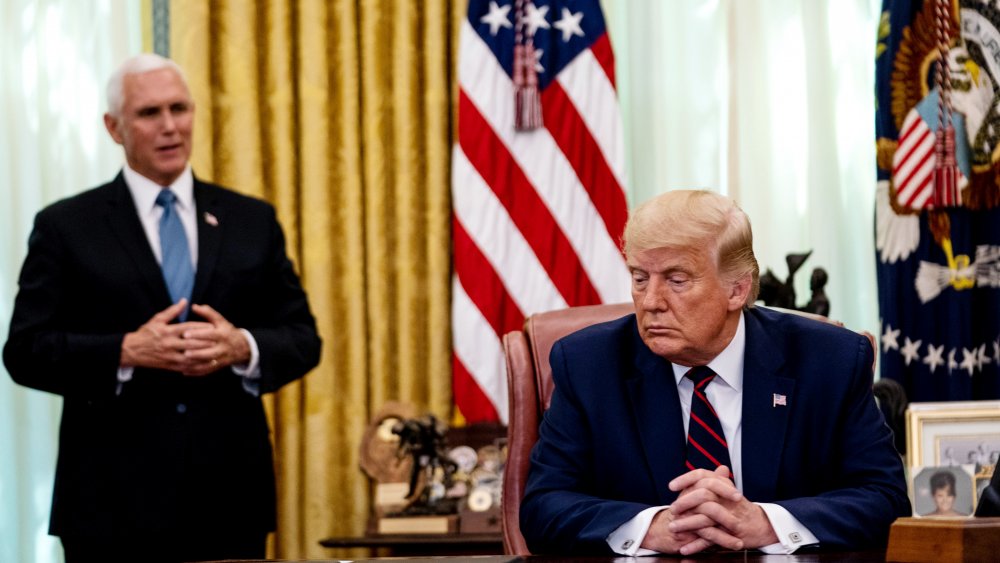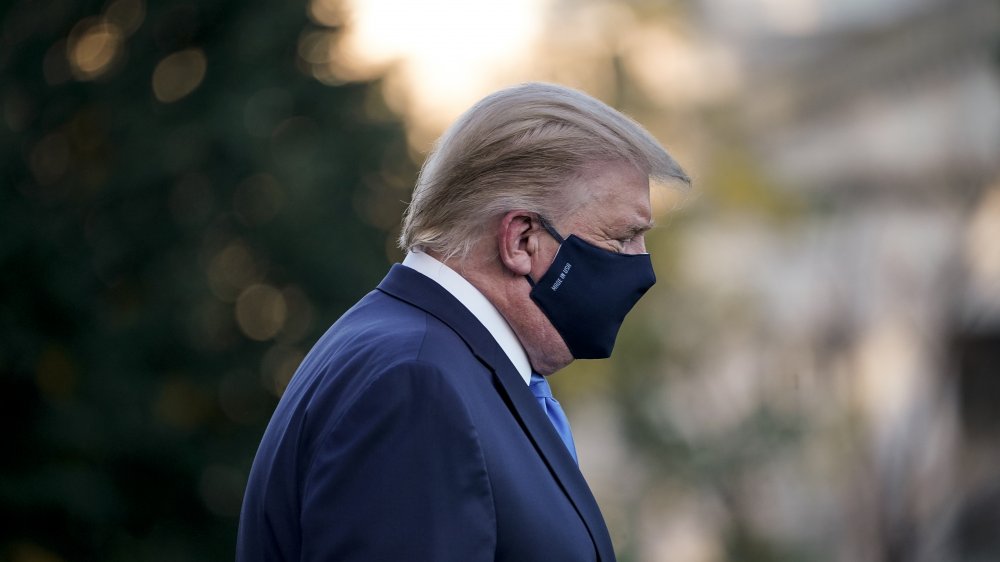Here's What Would Really Happen If Trump Died During The Election
A week ago, this conversation is one none we could have possibly imagined, but here we are. With President Donald Trump at Walter Reed Medical Center fighting a coronavirus infection, "what if" questions are now being asked — questions which constitutional law experts like NYU's Richard Pildes believe the public need to know. He told The Washington Post, "We do not know at this moment whether President Trump will have a mild or more serious case of COVID-19. But without being alarmist, there is a public need to know what the procedures would be were the president to become incapacitated in two situations: before the election or if he wins and becomes incapacitated before Inauguration Day."
One scenario Reuters says is not likely to happen, is that the November 3 election gets postponed or moved. While the constitution gives Congress the power to decide the election date, by law voting needs to happen on the first Tuesday after the first Monday in November, every four years. The elections have never been postponed — and if someone were to try, the Democratic House would never allow the Senate to let that happen.
There is a constitutionally-mandated succession if Trump dies before the elections
Alexander Hamilton, whose life and times are now immortalized in rap, might have considered the constitution to be an imperfect document (via The Independent). But, per The New York Times, it did outline a succession plan in the event that the president dies or is incapacitated before the elections happen. According to the 25th Amendment: "In case of the removal of the president from office or of his death or resignation, the vice president shall become president."
Having a vice president assume the highest office in the land may not be groundbreaking, but it isn't unprecedented. After John F. Kennedy was assassinated, Lyndon B Johnson became president; after Richard Nixon resigned, Gerald Ford — who was appointed after Spiro Agnew resigned as Vice President in October 1973 — became president in December, or about two months later (via History).
But if the vice president cannot serve for whatever reason, Congress gets to decide what happens next.
The RNC decides who should replace Trump if something were to happen
In the unlikely event that President Trump succumbs to COVID-19 around the time of the election, Richard Pildes says it would be up to the Republican National Committee (RNC) to replace the party's nominee. "If there were enough time, the party would seek to put the name of its new candidate on the ballot in each state. There almost certainly would not be time to do this, particularly if the issue only arises two to three weeks from now. The states have various deadlines for when the parties must certify their candidates for the ballot. Those dates have passed. In theory, the RNC could go to court to seek an order permitting it to change the name of its candidate. But there simply would not be enough time to reprint ballots at that point. President Trump will almost certainly remain on the ballot, no matter what happens," he told The Washington Post.
In the end, Pildes says that even if Trump were to pass and his name stays on the ballots, the RNC gets to decide who the new candidate will be to replace him, and the Republican states are most likely to follow the party's recommendations.


